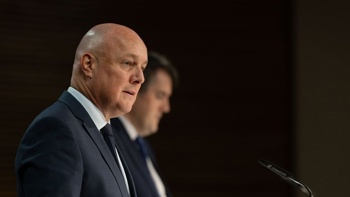Housing Minister Phil Twfyord is remaining coy on how Government changes to rental properties will affect rents.
This morning,Twyford unveiled new requirements for landlords as part of the Government's new healthy homes standards, which will come into effect between 2021 and 2024.
These include requiring all rental properties to have a heater in the main living room, as well as making sure kitchens and bathrooms have extraction fans.
But the most expensive requirement for landlords, according to the New Zealand Property Investors' Federation (NZPI), would be the new requirements around insulation.
The new rules will require the minimum level of ceiling and underfloor insulation to either meet the 2008 Building Code, or – for existing ceiling insulation – have a minimum thickness of 120mm.
The National Party and a property lobby groups say the cost of the Government's new rental minimum standards will be borne by renters in the form of increased rents.
Twyford told The Weekend Collective that these changes would cost approximately $7,000 for landlords to bring a three bedroom home to standard, but he believes only a small majority will be affected.
“Half the rental properties out there have extractor fans. Two thirds have a fixed heating source. We’re really talking about bringing the bottom end of the market up to where everyone else is and setting a minimum standard.”
He says that Housing New Zealand has 68,000 properties, and they will need to spend over $200 million, which will come off their balance books.
“We’ve set three years from now, basically, they have to have all their houses being compliant.”
NZPIR executive officer Andrew King said more than 90 per cent of the landlords represented by his group have already insulated their properties.
"A large proportion of those are going to now have to turn around and top it up to meet these new requirements."
He said the cost of bringing the level of insulation up to the new required level would cost roughly $1500-$2000 per home.
The insulation material itself does not cost a lot, he said, but the cost of the labour will be high.
"It costs just as much to top up insulation as it does to install it."
He said this cost – and the cost of complying with the rest of the new standards – would be passed on to the tenants, in the form of higher rent.
Meanwhile, he said just adding more insulation would not even have a major effect on keeping homes warm, if the home is already insulated.
National's housing spokeswoman Judith Collins agreed.
She said rents have increased in many parts of the country over the past year and the Government's new rules would see rents climb even further.
"There will be some landlords who are going to say 'it's just not worth it for me to retrofit this property'."
Instead of renting the property, Collins said many would-be landlords would just sell it on the open market.
Speaking at the unveiling of the new standards this morning, Lynley Thomas, a property owner and landlord, said although she would not increase her tenants' rents, there would likely be a flow-on effect whereby the costs could flow on to the tenant in the wider market.
"Indirectly, through a market rent raise which I think will inevitably happen, that's where the rent will go up."
There were already concerns over rising rents after the prospect of a Capital Gains Tax was raised by the Tax Working Group.
When that was put to him by the Weekend Collective, Twyford did confirm or deny that rents would rise.
He says that we have to do a lot to get the housing market back on track and bring it into the 21st century.
“We can’t wait around for the ideal moment of history to improve the quality of housing.”
Twyford says that when it comes to Capital Gains Tax, there’s no evidence from overseas countries that a tax would force rents up.
Take your Radio, Podcasts and Music with you









